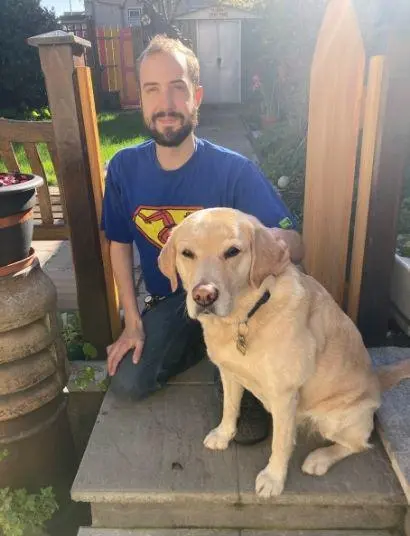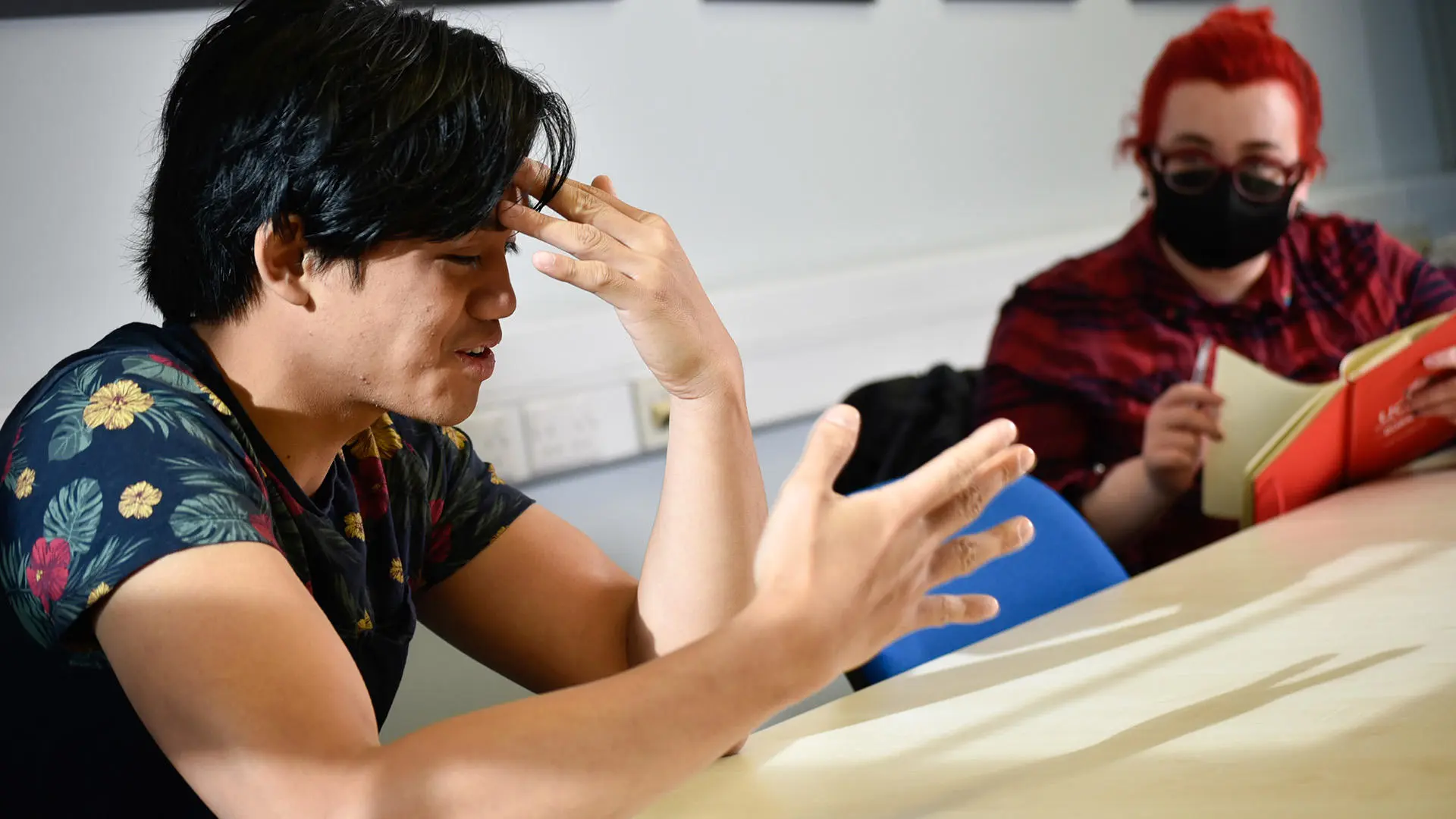Despite growing up with severe visual impairment, Rob is now qualified and working as a Psychotherapist, a profession in which he can thrive, thanks to the support he received at UCLan.
Rob explains: “The bullying from my school peers, the lack of support from my high school, the stigma surrounding disability and the death of my father before the age of 10 all added to a cocktail of savagely poor mental health. My job prospects at home were bleak until I started studying at the Royal National College for the Blind in Hereford. As my feet hit the floor, I was signing myself up to speak to a counsellor, and it was the best decision of my life.
Accessing counselling for the first time at the age of 20 was intense. As I sat in the chair, discussing with my counsellor all of these bottled up emotions that I didn’t even know existed within me, I started to imagine what it would be like to be the other person in this relationship. The person who knew just which questions to ask and when a non-judgemental companion along my mental health journey – and I thought “I could do that”.

Rob decided to stay at UCLan for his postgraduate studies due to the wider support he gained from the University’s various departments as a disabled student. He tells us about the course and how it has helped his career.
Additionally, the knowledge of my own internal processes I have gained through the course is immeasurable. I am now much happier than I have ever been, and I understand why I act the way I do. I am also able to communicate this to my family and friends, which is refreshing and has brought me closer to those I love.
My extended essay on the course consisted of a literature review of my choice. I chose to investigate psychotherapeutic explanations of suicide, through an integrative lens. This meant I reviewed Humanistic, Existential, Classical Psychoanalytic and contemporary Psychodynamic theories on why individuals may feel the need to end their own life. This also incorporated recent research literature for supporting/critical comparisons of arguments, which has given me knowledge of many extra resources regarding measuring an individual’s suicidality.
The best thing about the course was the teaching - it was incredible. I felt challenged at every step, but equally supported. The lecturers were guiding us towards our own way of working and openly encouraged this. Whilst there are certain criteria we must meet in order to pass the course, it was very flexible as to which parts of integrative theory best fit our own personal modalities, and as long as we could justify this, the lecturers worked to help us succeed.
"There are multiple progressions from where I am now, and there is always the opportunity to retrain in the future."
— Rob Greggor, MA Integrative Psychotherapy student
